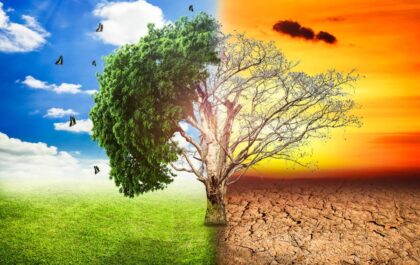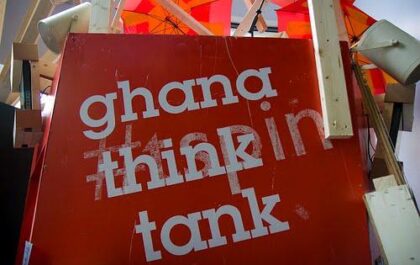A leading climate and sustainability think tank has welcomed new environmental measures announced by President John Dramani Mahama, while cautioning that long-term success will depend on how the policies are rolled out.
The Centre for Climate Change and Food Security (CCCFS) described the government’s move to phase out wooden school furniture and ban the use of Styrofoam as a “positive and necessary step” towards environmental sustainability.
The directive, announced on World Environment Day 2025, forms part of a wider effort to tackle deforestation and reduce plastic pollution across Ghana.
Speaking after the announcement, CCCFS Deputy Director of Research and environmental economist Dr. Alexander Nti Kani praised the government’s intent but said the country must go beyond policy statements and ensure responsible management of materials.
“The shift from wood to recycled plastic and metal in school furniture is commendable,” Dr. Kani said. “But without proper end-of-life management, these same materials could become tomorrow’s environmental challenge.”
The organization also voiced strong support for the ban on Styrofoam, which is often blamed for clogging drains, polluting water bodies, and endangering wildlife. The move aligns with this year’s World Environment Day theme, “Beat Plastic Pollution.”
However, Dr. Kani reiterated CCCFS’s concerns over the broader effectiveness of plastic recycling, referencing the think tank’s support for the 2024 report “The Fraud of Plastic Recycling” by the Center for Climate Integrity.
“In countries with underdeveloped waste systems like Ghana, recycling often fails to deliver the environmental benefits it promises,” he said.
To ensure the initiative delivers lasting results, the CCCFS outlined a set of eight recommendations for policymakers. These include:
-
Legislating the proposed environmental directives;
-
Developing a national framework for managing used school furniture;
-
Partnering with local manufacturers and recyclers;
-
Supporting traditional furniture producers to adopt sustainable practices;
-
Setting safety and durability standards for recycled materials;
-
Launching public education campaigns on plastic use and waste;
-
Promoting community-level waste literacy;
-
Ensuring that alternative materials are environmentally safe.
“Plastic pollution is a complex, systemic threat that reaches into our ecosystems, food chains, and even the air we breathe,” the organization said in a statement. “If not managed properly, even environmentally friendly alternatives can have unintended consequences.”
Despite the challenges, CCCFS reaffirmed its willingness to collaborate with the government to shape a transition strategy that is both sustainable and inclusive.
“Ghana’s journey to environmental resilience must be bold but it must also be backed by strategy, transparency, and long-term commitment,” Dr. Kani said.
Reported by:
ABDULLAH ABDUL MALIK








